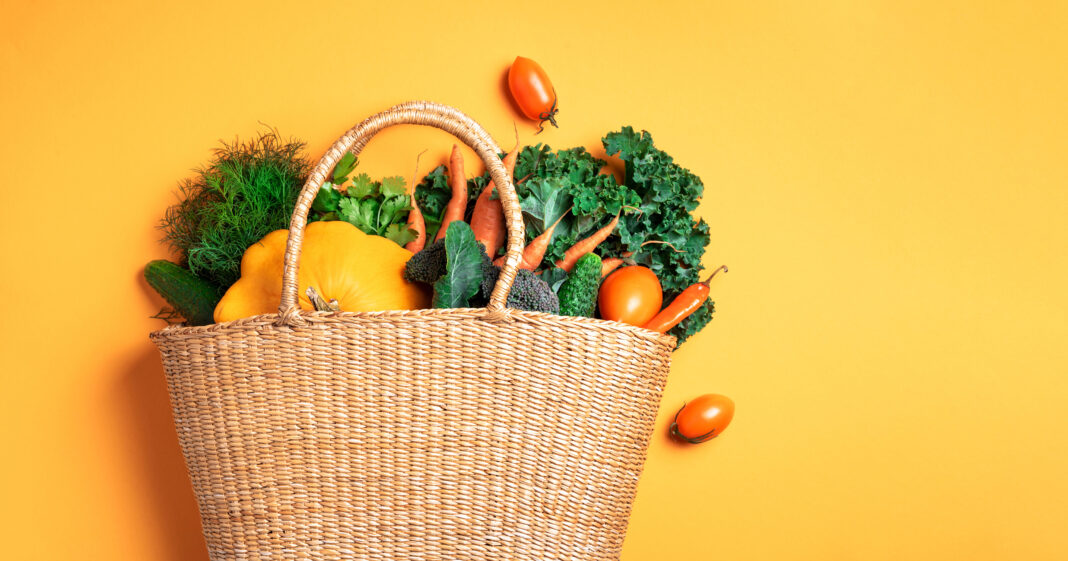We need to simplify how we think about food.
Things are getting complicated.
Every month there seems to be a new diet pill, shake or plan we need to follow. Whether it is the latest trend to lose weight, balance hormones or to better your metabolism, there are big promises with short timelines when it comes to our health and nutrition.
If we all ate the same food and did the same workouts, we would still have different bodies. There isn’t a magic program or plan that is going to work for everyone.
As an integrative nutritionist, I am here to tell you we need to simplify our thinking about food and how it nourishes our body, mind and soul, to have life-lasting changes that benefit our health forever.
We need to focus on eating nutrient-dense food. Period.
But what does that really mean?
Nutrient dense food is food that is high in nutrients and relatively low in calories. Nutrients include vitamins, minerals, fibre, protein, complex carbohydrates and healthy fats. When a food item is high in these areas and relatively low in calories, it benefits our health and wellness in various ways. Overly processed foods which have high amounts of saturated fats, sugar and salt have a negative impact on our health.
Whether you are shopping at the grocery store, doing your food prep for the week, or deciding what to have while out for dinner, a simple way to think about it is this: will this food help me towards my health and wellness goals or hinder them? If 90 per cent of the time you help your health, you’re doing exceptionally well. We don’t need to be perfect…everyone wants a piece of cake or a cocktail at times.
A few other questions you may want to ask yourself are:
- How am I going to feel after I eat this? Am I going to feel energized and nourished? Or will I feel sluggish with an upset stomach?
- Will eating this food help support a strong immune system? My goals in the gym or on the court?
My desire for more energy and better sleep?
When we reach for nutrient-dense food, the answers will be yes.
Now that we know why we want to eat nutrient-dense food, what are the best ones to add to your weekly grocery list and why?
- Blueberries — help control bad cholesterol, blood pressure, blood sugar, body weight, diabetes and inflammation. Also strengthens the immune system and cancer defence system. They are noted as one of the top five foods for brain health due to their potential for increasing neurological function.
- Red pepper — loaded with vitamins and minerals, red peppers have 169 per cent of your daily needs for vitamin C, making it excellent for immune support (www.healthline.com).
- Broccoli — exceptional for reducing inflammation, stabilizing blood sugar and strengthening the immune system. May also protect against certain types of cancer.
- Walnuts — may help reduce heart-disease risk, walnuts also reduce inflammation and are one
of the top five foods for brain health. - Turmeric — health benefits to both the brain and the body, risk reduction for Alzheimer’s disease, arthritis, depression, heart disease, while improving brain health and slowing down the aging process of the body.
- Green tea — from digestive-health and brain-health support and blood-sugar management
to reducing inflammation, this one tops the list for teas. - Kimchi — with active probiotics, kimchi offers digestive support, weight-management help, inflammation reduction and supports a strong immune system.
- Spinach — this powerful leafy green reduces cancer risk, slows the aging process and can help regulate blood pressure.
- Avocado — for improved cognitive function and excellent for cardiovascular health, avocados also benefit overall digestive health.
- Olive oil — best to top your food with heart-healthy olive oil for its numerous health benefits including reduced risk of Alzheimer’s disease and stroke, anti-cancer benefits, reduced inflammation.
I would encourage you to simplify your process when it comes to nutrition. Measuring and weighing our food is not sustainable long-term, and really takes the joy factor out of the equation. Ask yourself ‘how can I make this meal one step healthier?’ to help you take your meals from good to great. Perhaps it’s topping your salad with half an avocado, using pumpkin seeds for added crunch and topping it with olive oil. Or having a small bowl of kimchi before dinner and sipping on green tea when it is through.
These small changes to our meals add up to big change over time in our health. The goal should truly be to feel your best at any age.
You may also like: A Brain Nutrition Program for Concussion Recovery & Support

Read This Story in Our 2024 Fall Fitness Issue
IMPACT Magazine Fall Fitness Issue 2024 featuring Canadian figure skating icon Elladj Baldé, Paralympic shot putter Greg Stewart, Indigenous rights trail running Anita Cardinal. Adventure travel with some amazing winter getaways, strengthen your back and hips, find the art of joyful movement, Inclusivity in the fitness industry and so much more!
















